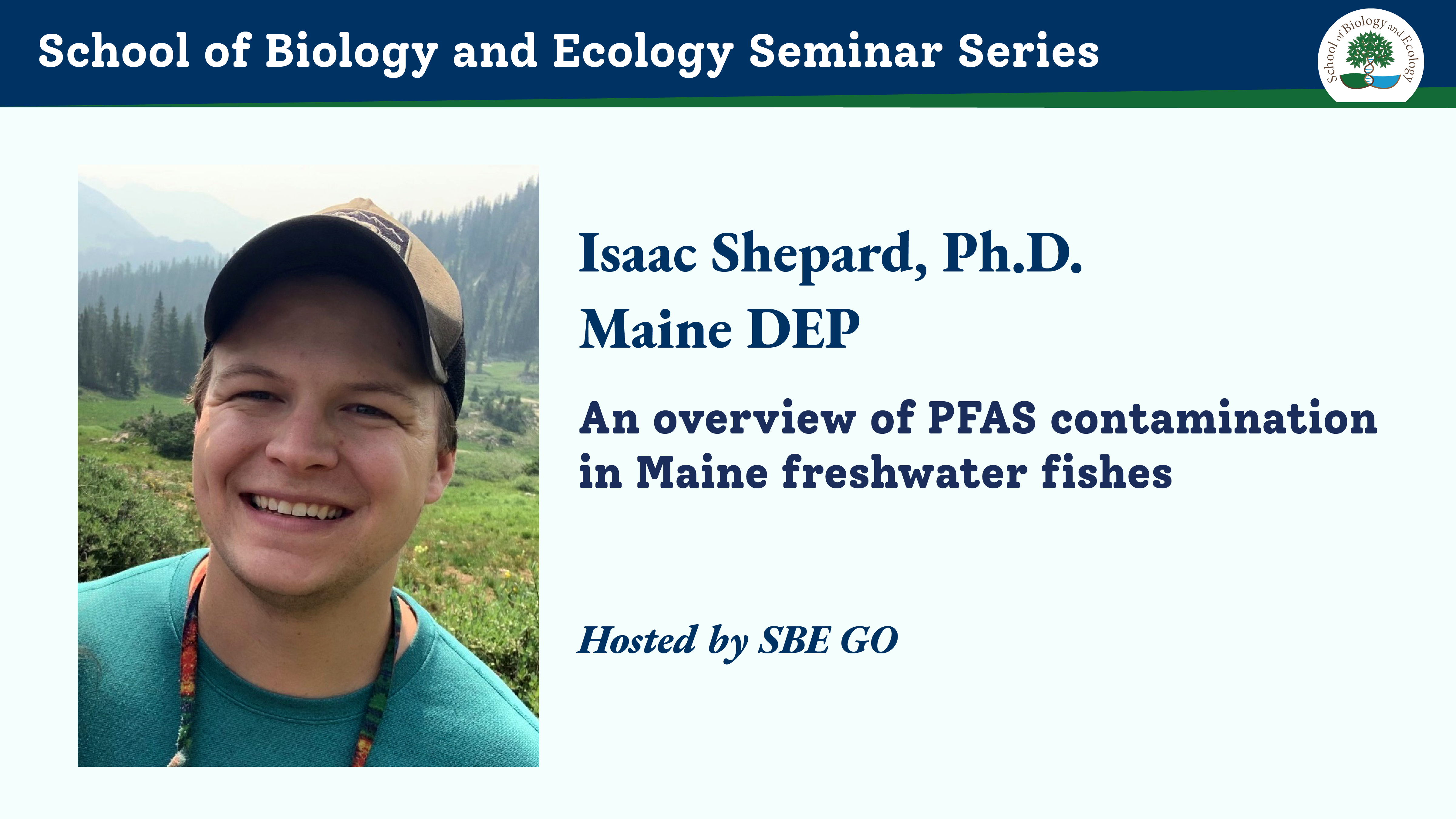Dr. Isaac Shepard, Maine DEP: An overview of PFAS contamination in Maine freshwater fishes.
Polyfluoroalkyl substances (PFAS), colloquially known as ‘forever chemicals’, have known adverse effects on human health. One way that humans can be exposed to these chemicals is by ingesting contaminated fish. Given the cultural and economic importance of fishing in Maine, it is critical that we understand the extent and intensity of PFAS contamination across a variety of sport fish species across the State. The Maine Department of Environmental Protection has been monitoring PFAS in fish tissue and surface waters since 2014. While gaps in the data remain, we have been able to begin identifying hotspots of PFAS contamination in fish. These data are critical to efforts by the State to develop consumption advisories and identify sources of PFAS contamination.
Isaac Shepard is a biologist in the aquatic toxicology unit for the Maine Department of Environmental Protection. Much of his work is focused on monitoring and understanding the spread of PFAS and other emerging contaminants in Maine’s surface waters and freshwater fishes. Isaac has a bachelor’s degree in biology from Oregon State University and a PhD in Ecology and Environmental Sciences from the University of Maine.
Hosted by SBE GO.


